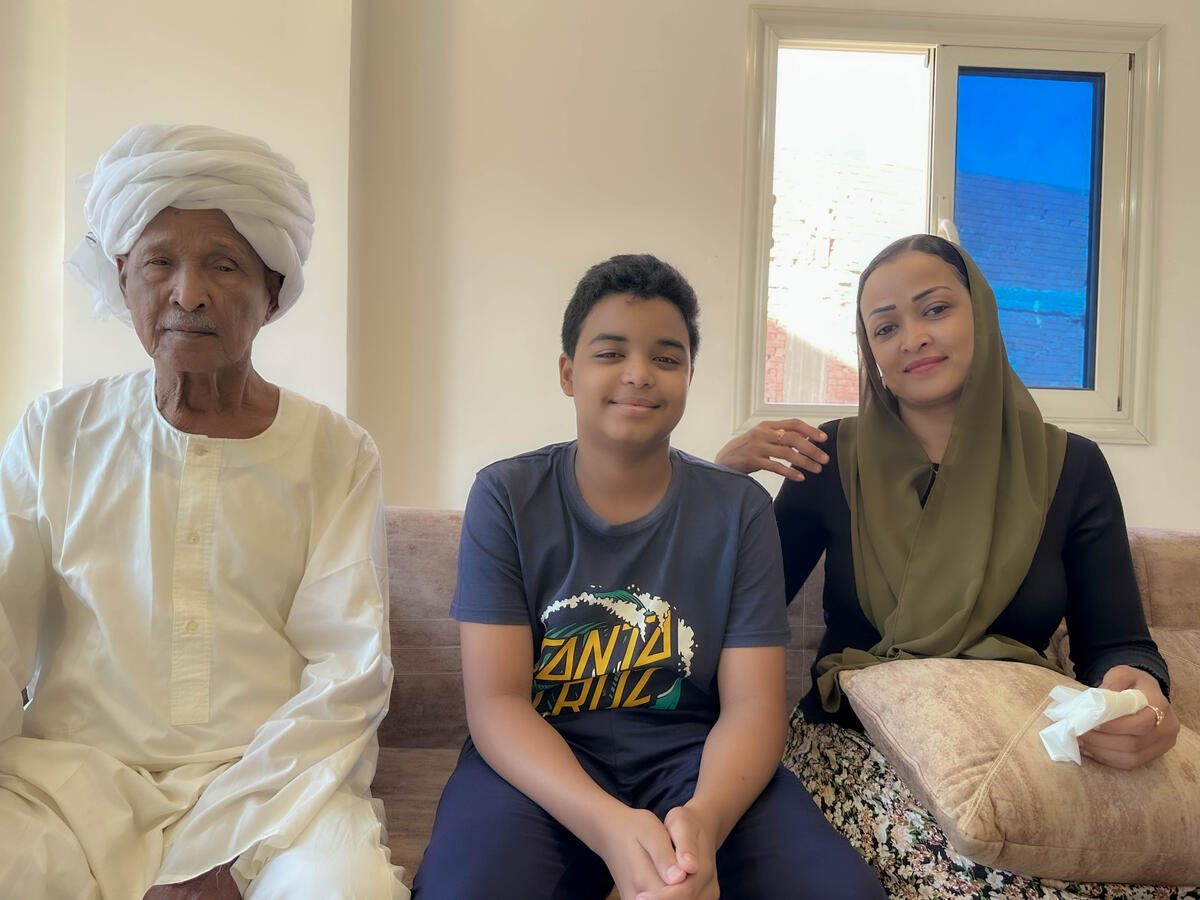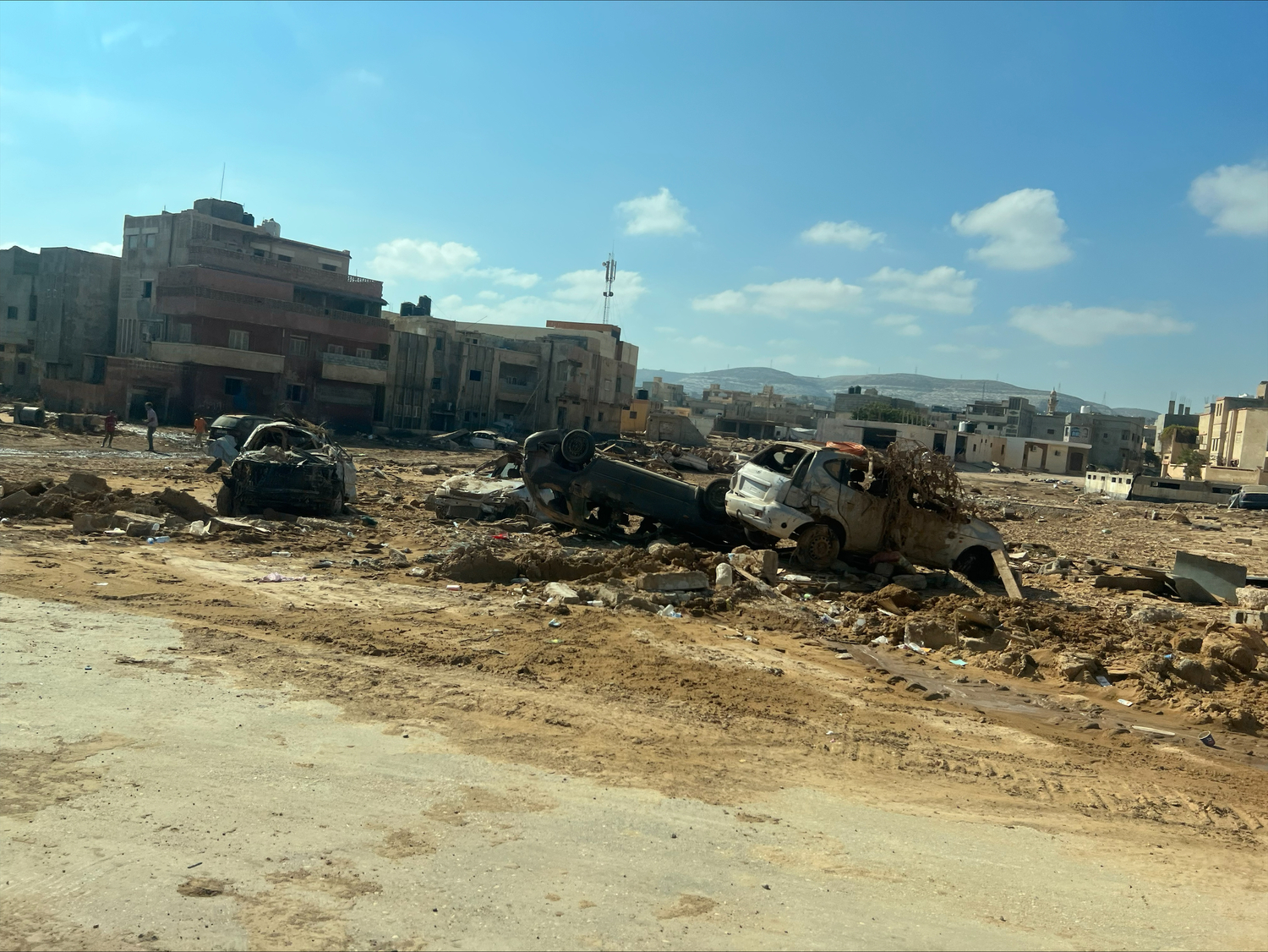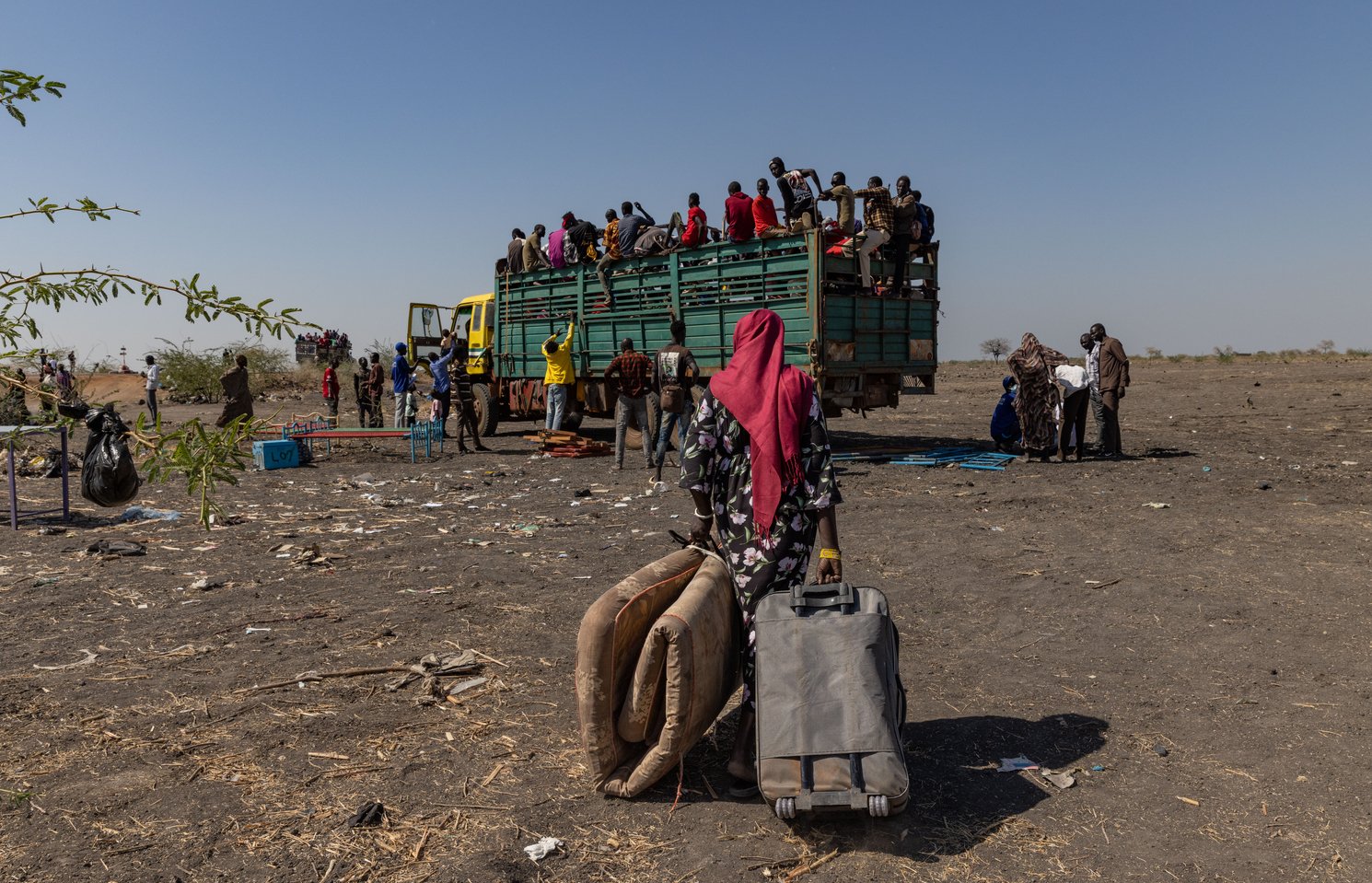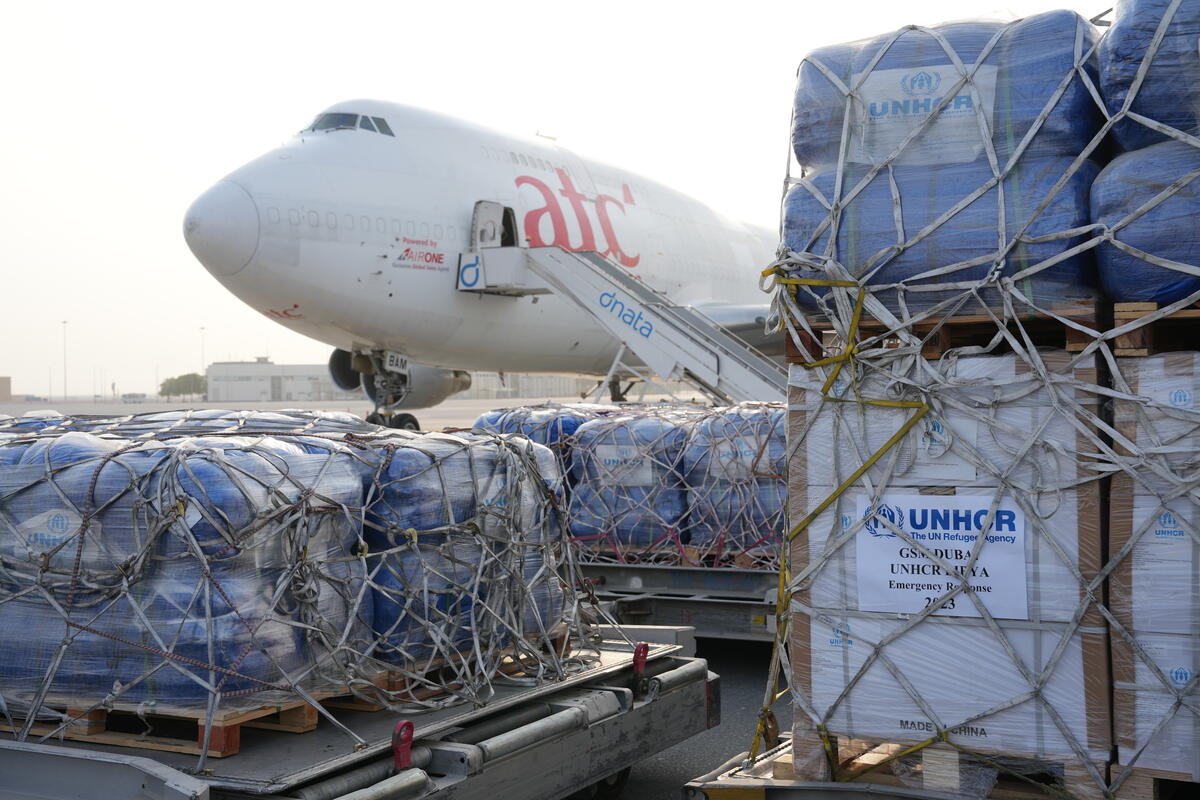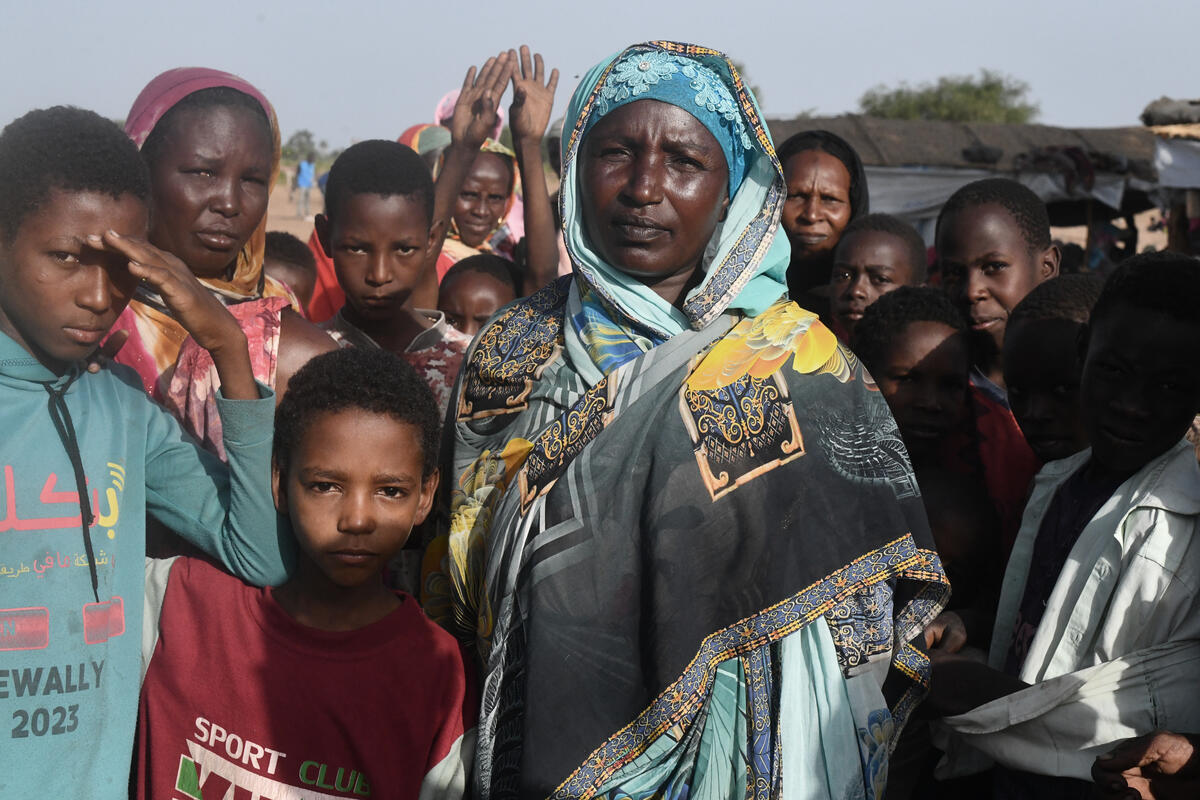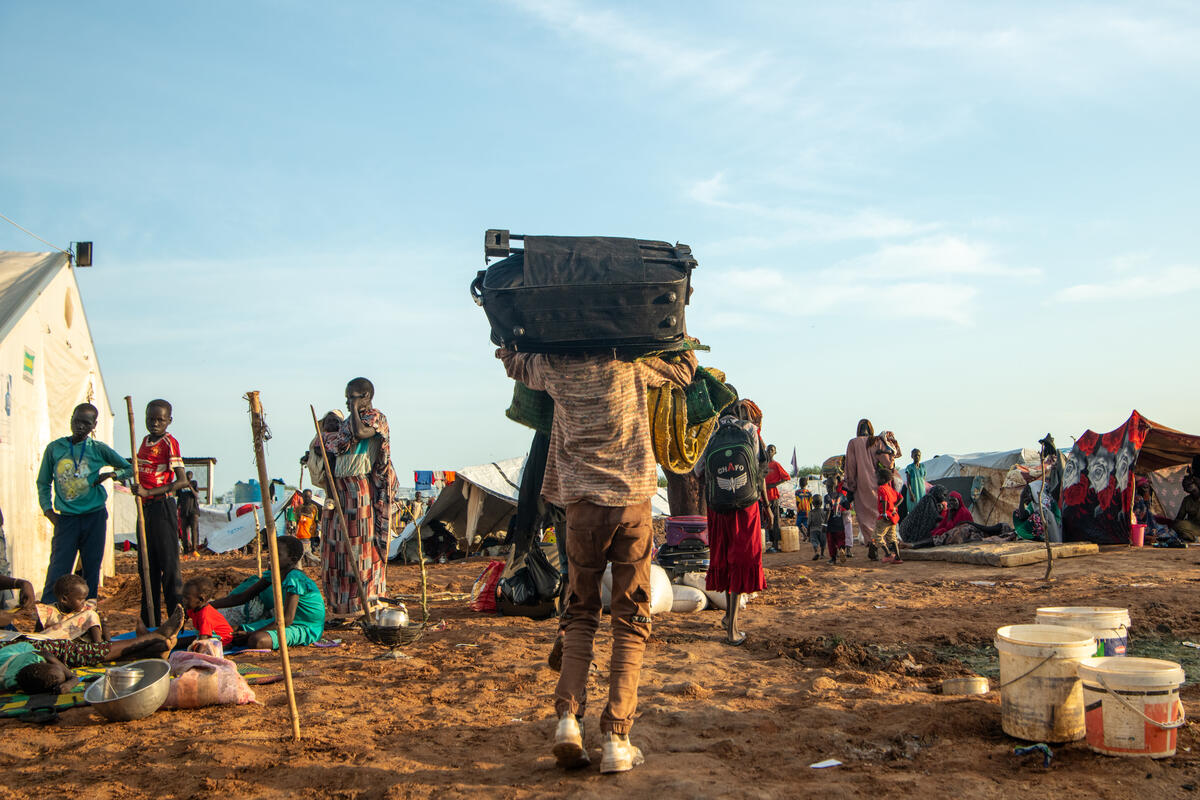Sub-Saharan Africans fleeing Libya report serious intimidation, violence
Sub-Saharan Africans fleeing Libya report serious intimidation, violence
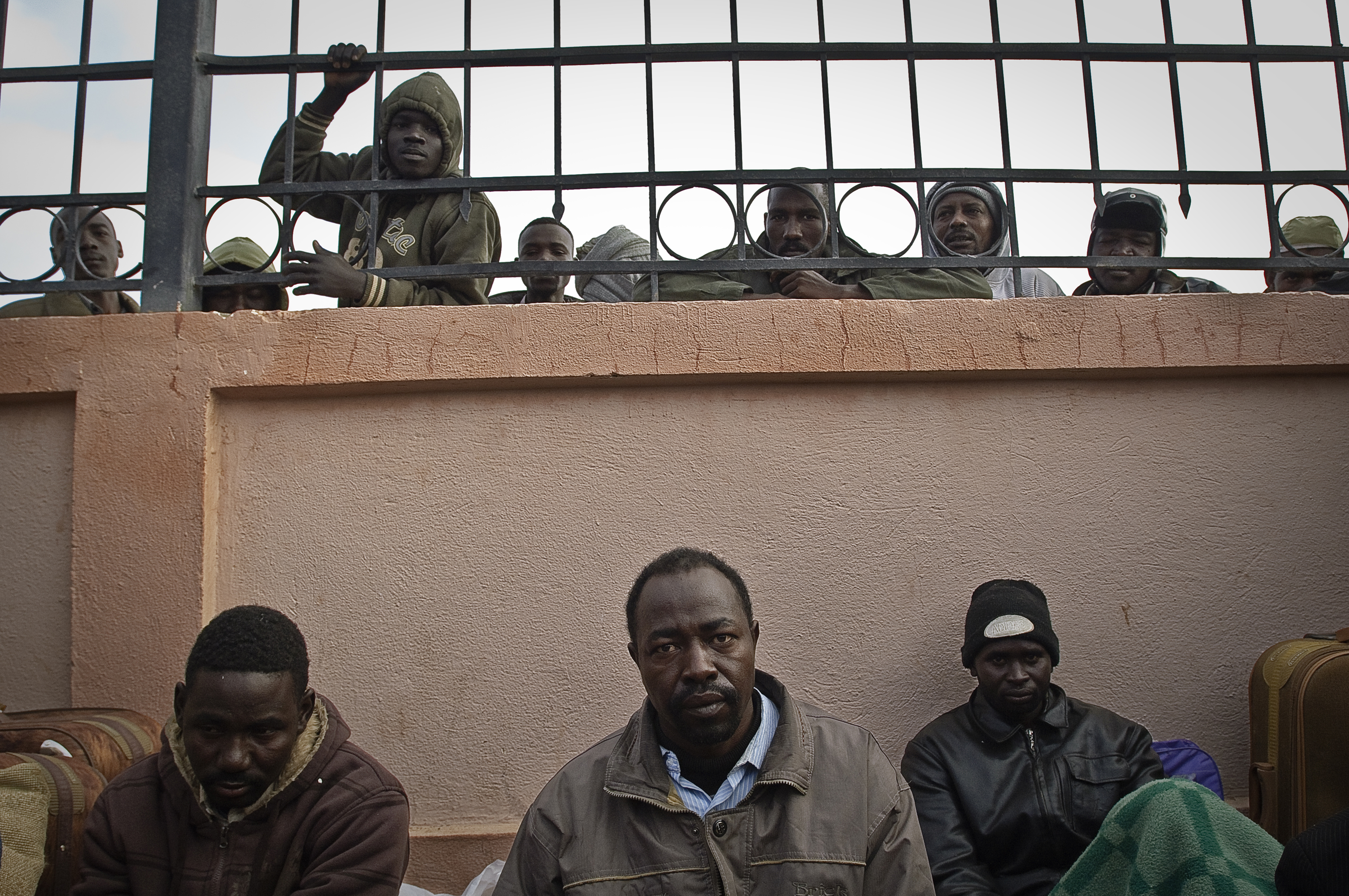
GENEVA, March 8 (UNHCR) - UNHCR said on Tuesday it was alarmed by a growing number of accounts it has been hearing of violence and discrimination in Libya against sub-Saharan Africans.
Speaking at a press conference in Geneva, UNHCR Spokesman Adrian Edwards said these accounts were coming from people who had fled both eastern and western areas of Libya.
"Yesterday a UNHCR team at the Egypt border interviewed a group of Sudanese who arrived from eastern Libya who said that armed Libyans were going door to door, forcing sub-Saharan Africans to leave. In one instance a 12-year-old Sudanese girl was said to have been raped," Edwards said.
"They reported that many people had their documents confiscated or destroyed. We heard similar accounts from a group of Chadians who fled Benghazi, Al Bayda and Brega in the past few days," he added.
Edwards reiterated UNHCR's call for all parties to recognize the vulnerability of refugees and migrants from sub-Saharan Africa and to take measures to ensure their protection. He also pointed to a need to quickly bring home people who were arriving in Egypt and Tunisia from Libya, and who in some cases had been camping in the open for up to ten days.
"At both borders, most of those awaiting evacuation are Bangladeshi single men. There is a critical shortage at present of long-haul flights to Bangladesh, other Asian countries and sub-Saharan Africa," he said. "UNHCR and IOM are using cash contributions to charter flights, and several donor countries have offered long-haul flights. Nevertheless, with an estimated 40-50 flights needed to repatriate all the migrants, further support will be needed to ensure that everyone is transported home."
At the Tunisian border with Libya the number of arrivals has dropped considerably since the start of the month, with 2485 people arriving on Monday. The drop in numbers has coincided with intensified fighting in western Libya. Accounts from people who have arrived during the past days describe numerous military road blocks along the route, with the majority reporting that they were searched along the way for mobile phones, memory cards and simcards. UNHCR's tented transit camp in Choucha, close to the border, currently holds 15,000 people. UNHCR has registered 311 people with protection concerns, including Somalis and Eritreans.
UN High Commissioner for Refugees, António Guterres and IOM Director General William Lacy Swing were in Tunisia on Tuesday to meet the government and visit the border area to talk to local communities and assess conditions for themselves.
The number of people who have fled the violence in Libya has passed 212,000, including 112,169 in Tunisia, and 98,188 in Egypt. UNHCR has also heard from the Algerian Government that more than 4000 people have arrived in Algeria by air, land and sea, including evacuations from Tunisia and Egypt.


